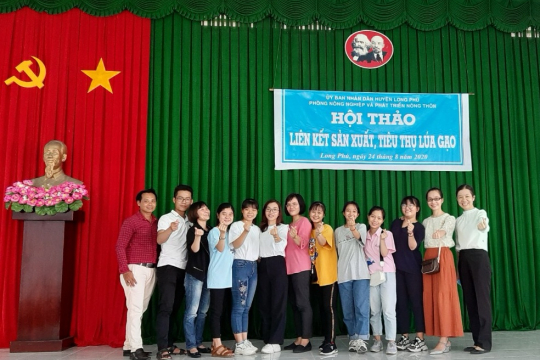Based on the EfD Discussion Paper entitled “Gender-differentiated impacts of salinity intrusion on agricultural production and food security: A study in the Mekong Delta, Vietnam” by Dang, L.H., Pham, T.T & Pham, K.N.
|
Research questions: How does salinity intrusion affect agricultural production and food security and how are male and female farmers different in those impacts? Key Messages
|


